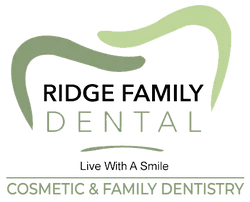Jaw pain is a common issue that many people experience at some point in their lives. It can range from a mild, occasional ache to persistent, sharp discomfort that interferes with daily activities. While some causes of jaw pain may resolve on their own, others require professional evaluation and treatment. Understanding when to see a dentist for jaw pain can help you avoid more serious problems and get relief sooner.

Understanding the Nature of Jaw Pain
Jaw pain can stem from a variety of sources. It might be related to dental issues such as tooth decay, gum disease, or abscesses. It can also be the result of problems with the temporomandibular joint (TMJ), which connects your jawbone to your skull. Other causes include teeth grinding (bruxism), trauma or injury, sinus infections, or even stress-related tension. If your jaw pain is mild and temporary, perhaps due to chewing something hard or a brief period of stress, you might not need immediate dental attention. However, persistent or worsening pain should never be ignored, as it could indicate a more serious issue.
When the Pain Is Persistent or Recurring
If your jaw pain lingers for more than a few days or keeps coming back, it’s time to see a dentist. Persistent discomfort often signals an underlying problem that won’t resolve without intervention. Conditions like TMJ disorders can cause chronic jaw pain, stiffness, and even clicking or popping sounds when you open and close your mouth. Dentists can evaluate your symptoms, perform an exam, and possibly recommend imaging to determine the root cause.
Difficulty Chewing or Opening Your Mouth
One of the clearest signs that something is wrong is difficulty performing normal jaw movements. If you find it painful or challenging to chew, speak, or open your mouth fully, you should seek dental care promptly. These symptoms can be related to TMJ dysfunction, inflammation, or even dislocation. A dentist can assess whether a dental appliance, physical therapy, or other treatments are appropriate for your situation.
Swelling, Redness, or Fever
Jaw pain accompanied by swelling, redness, or fever may indicate an infection. This could stem from an abscessed tooth, infected gum tissue, or another oral health problem that has spread. Infections in or near the jaw are serious and can become dangerous if left untreated. Seeing a dentist quickly can help control the infection and prevent complications, such as the spread of bacteria to other parts of the body.
Pain That Radiates to the Ear or Neck
Because of the jaw’s close proximity to the ear and neck, pain in these areas can sometimes be linked. If your jaw pain is radiating outward, especially toward the ear, it could be related to a dental or TMJ issue. Ear pain without signs of an ear infection may actually be a symptom of a jaw disorder. Dentists are trained to identify whether the issue is oral or if you need to be referred to another specialist.
Clicking or Popping Sounds in the Jaw
Many people experience occasional clicking in the jaw. But if it’s frequent, painful, or accompanied by a locking sensation, it could be a sign of a TMJ disorder. Dentists can help determine whether the joint is inflamed, misaligned, or under strain, and provide guidance on therapies or lifestyle changes to ease the discomfort.
Unexplained Tooth Pain or Sensitivity
Sometimes jaw pain isn’t clearly linked to the jaw itself. You may feel pain in your teeth that doesn’t match up with any cavities or visible issues. In these cases, the pain may be referred from another part of the jaw or even caused by nerve compression. A dentist can perform diagnostic tests to pinpoint the source and determine whether the issue is dental, muscular, or related to the jaw joint.
Jaw Pain Treatment in Lyndhurst, NJ
At Ridge Family Dental, your oral health is our top priority. If you experience chronic jaw pain or discomfort, prompt treatment is crucial. The longer you wait to see a dentist, the more damage your could experience. Contact our office today to schedule a consultation and learn more about what could be causing your jaw problems.
